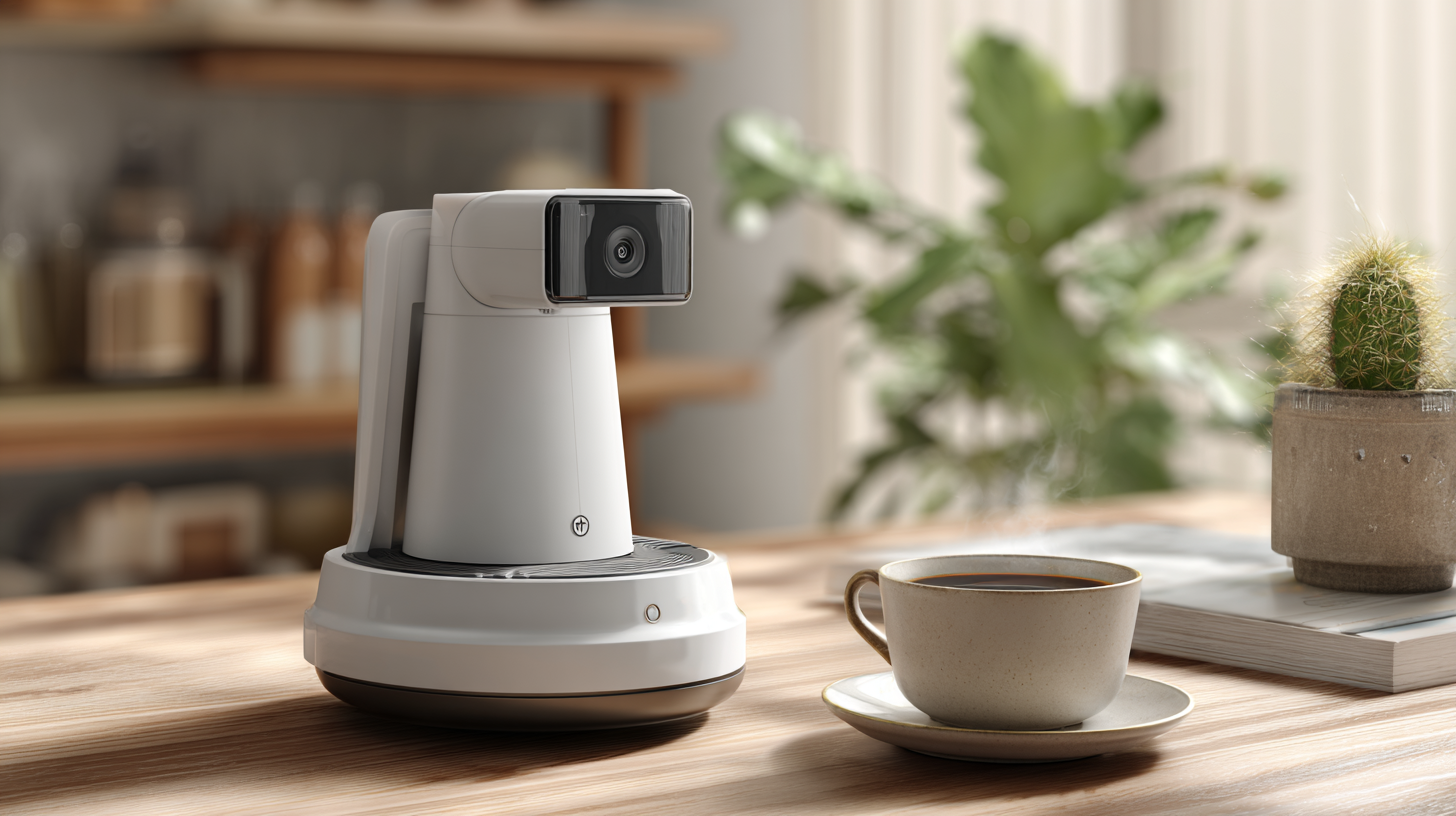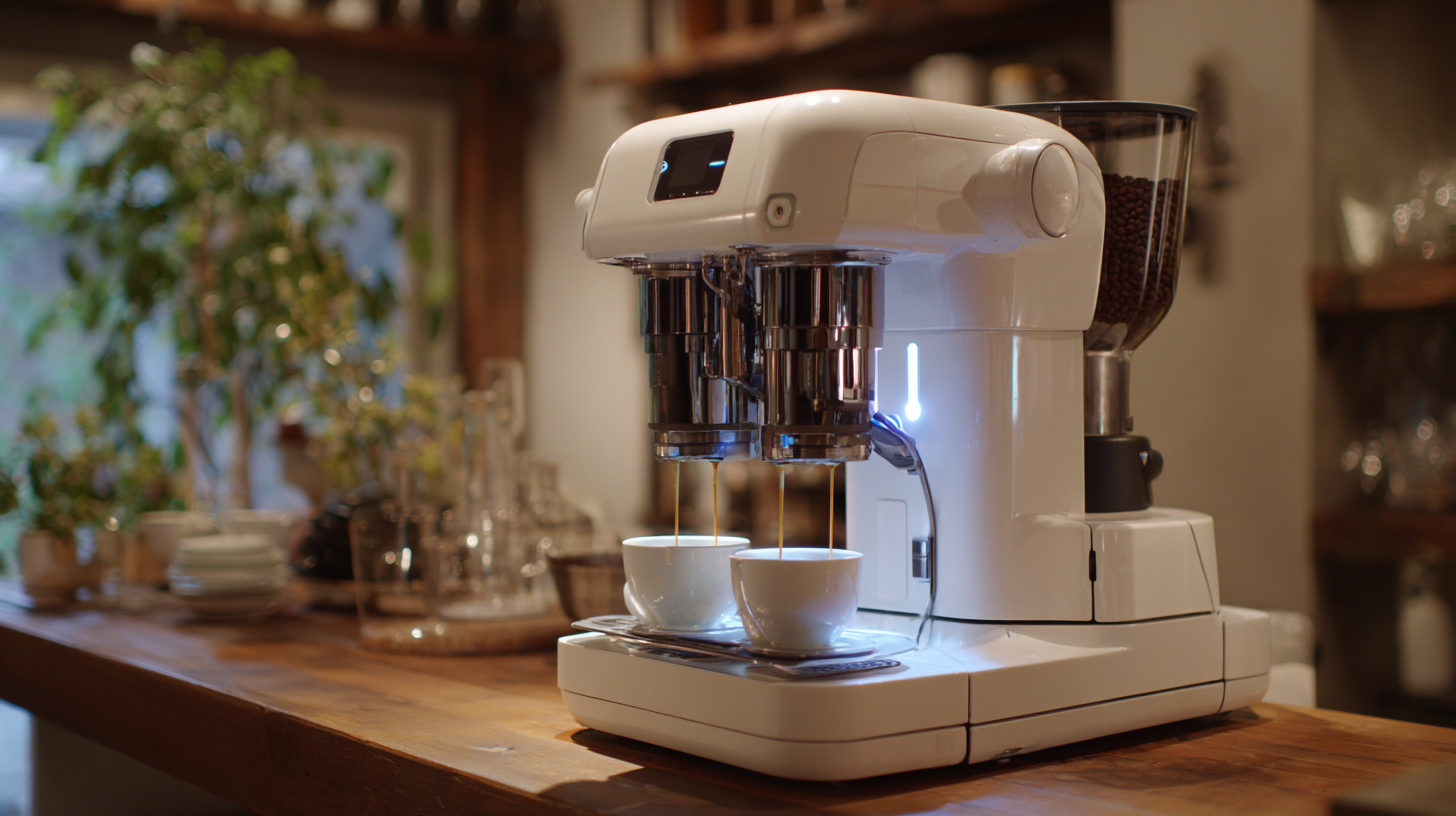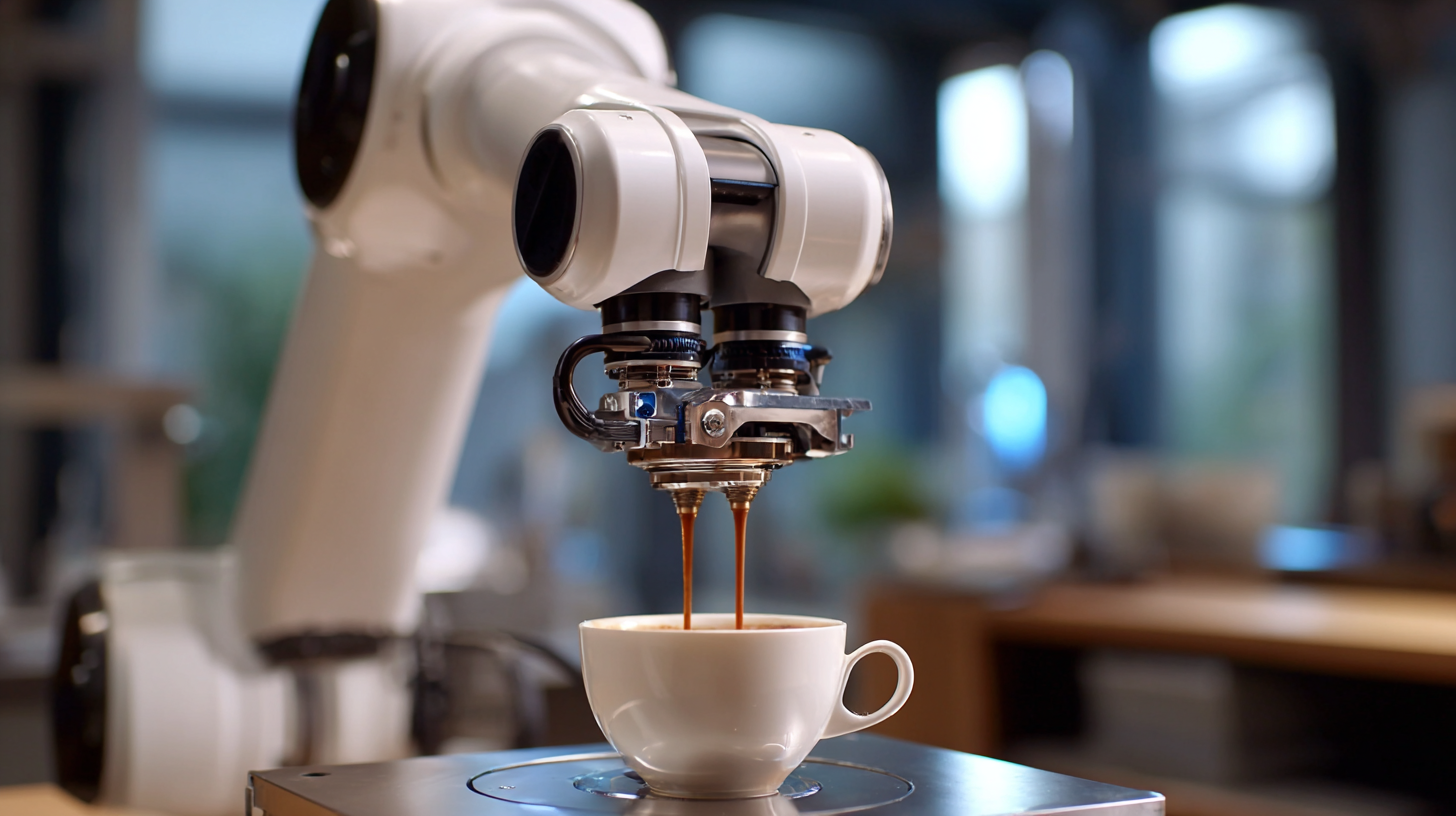- PCB Assembly
- PCB Fab
- Resources
- Company
- Blog
Revolutionizing Your Morning Brew: How Coffee Robots Are Changing the Coffee Experience
As the global coffee market continues to thrive, with a projected value expected to reach $155.64 billion by 2026, innovations in brewing technology are reshaping our coffee experiences. One of the most groundbreaking advancements in this field is the emergence of Coffee Robots, which promise to enhance both convenience and precision in our daily brewing rituals. According to a recent report by the Specialty Coffee Association, approximately 60% of coffee drinkers express interest in technology that personalizes their coffee experience, highlighting a significant market shift towards automated solutions.

Coffee Robots are revolutionizing the way consumers interact with their morning brew, providing consistency and quality that manual brewing methods often cannot match. With features such as customizable brewing parameters and smart integrations with mobile devices, these machines cater to the preferences of a new generation of coffee enthusiasts who seek both efficiency and excellence. A study by Technavio suggests that the demand for automated brewing solutions is expected to grow significantly, driven by consumers' desire for convenience without compromising on taste. As we explore the impact of Coffee Robots on our coffee routines, it becomes clear that the future of coffee drinking is not only about flavor but also about the seamless integration of technology into our everyday lives.
The Rise of Coffee Robots: Transforming the Brewing Process for Home and Cafés
The rise of coffee robots is transforming the brewing process for both homes and cafés, ushering in a new era of convenience and precision. These innovative machines are designed to automate intricate brewing techniques, ensuring a consistently high-quality cup of coffee every time. From pouring the perfect amount of water to regulating the ideal temperature, coffee robots accommodate a variety of brewing methods, allowing users to customize their experience to match their preferences. As a result, coffee enthusiasts are no longer confined to traditional methods of brewing and can explore new flavors and styles with ease.
Tips for Introducing Coffee Robots into Your Routine:
1. Start simple: When first using a coffee robot, stick to basic brewing functions to familiarize yourself with its features.
2. Experiment with settings: Take advantage of adjustable parameters like grind size, brew time, and water temperature to find the perfect taste that suits your palate.
3. Clean regularly: Maintain your coffee robot for optimal performance and taste by cleaning it according to the manufacturer's recommendations, ensuring every cup remains delicious.
These advancements not only enhance the brewing experience for individual coffee lovers but also elevate the service standards in cafés, making high-quality coffee more accessible to everyone. As coffee robots become more prevalent, the craft of brewing will reach new heights, combining the art of coffee-making with cutting-edge technology.
Enhancing Consistency and Quality: How Robots Improve Coffee Flavor Profiles
In recent years, the introduction of coffee robots has revolutionized the way we brew our favorite morning beverage. These advanced machines are designed to enhance the consistency and quality of coffee, ensuring that each cup is a rich and flavorful experience. By employing precise measurement techniques and automated brewing processes, coffee robots eliminate human error and variability, delivering a consistently high-quality product cup after cup.

Furthermore, coffee robots utilize sophisticated algorithms and technology to fine-tune flavor profiles. By analyzing brewing parameters such as water temperature, grind size, and extraction time, these machines can optimize each variable for different coffee beans, highlighting their unique characteristics. As a result, coffee enthusiasts can enjoy a bespoke coffee experience that showcases the finest notes and aromas, tailored to individual preferences. This innovation not only elevates the coffee-drinking experience but also expands the possibilities for coffee experimentation and appreciation.
Data-Driven Brewing: The Role of AI in Optimizing Coffee Quality
The journey of coffee from bean to cup is undergoing a significant transformation, driven predominantly by data analytics and artificial intelligence. As the coffee industry embraces this technological evolution, we witness a profound impact on quality and personalization. According to recent market analyses, the increasing integration of AI tools has supported roasters in refining their brewing techniques, leading to an uptick in customer satisfaction. Machines equipped with AI can learn user preferences over time, enabling the creation of a tailored coffee experience that caters precisely to individual tastes.
Tips: To optimize your coffee experience, consider investing in an AI-powered coffee machine that learns your brewing preferences. Experiment with different beans and brew parameters, allowing the machine to adjust for the perfect cup.
The advancements in coffee brewing technology echo trends seen in other industries, such as the rapid growth in the craft beverage sector, which is projected to reach USD 15.03 billion by 2033. The intelligence gleaned from customer data not only enhances product offerings but also informs strategic decisions on flavor profiles and sourcing. The smart use of data in coffee roasting ensures consistency in quality while appealing to the growing consumer demand for unique and high-grade coffee experiences.
Tips: Regularly review data from your coffee machine to identify brewing patterns and adjust your routines accordingly. This can help you achieve a balanced flavor that resonates with your palate over time.
Consumer Trends: Growing Demand for Automated Coffee Solutions in the Market
The coffee market is undergoing a significant transformation as consumer demand for automated coffee solutions continues to rise. A recent report by Allied Market Research forecasts that the global smart coffee maker market will grow from $2.34 billion in 2021 to $3.82 billion by 2028, reflecting a compound annual growth rate (CAGR) of 7.2%. This trend highlights how coffee enthusiasts are increasingly seeking convenience and consistency, leading to a burgeoning market for coffee robots that promise to deliver barista-quality brews at home.
For those looking to elevate their morning coffee experience, consider investing in a smart coffee maker that offers programmable settings. These machines can prepare your favorite brew according to your schedule, minimizing morning stress. Furthermore, integrating these gadgets into your smart home system can streamline your routine and enhance efficiency.
Tips: When exploring automated coffee solutions, look for models that allow for customization, such as grind size and brew strength, to suit your personal taste. Additionally, keep an eye out for machines with app connectivity, which can offer reminders and suggest brew times based on your preferences. Embracing these innovations not only promotes a better coffee experience but also aligns with the growing trend toward automation in our daily lives.
Revolutionizing Your Morning Brew: How Coffee Robots Are Changing the Coffee Experience
| Coffee Robot Model | Brewing Time (minutes) | Capacity (Cups) | Price ($) | Consumer Rating (out of 5) |
|---|---|---|---|---|
| Barista Pro | 4 | 6 | 299 | 4.8 |
| Smart Brew | 3 | 8 | 399 | 4.5 |
| Café Maestro | 5 | 4 | 249 | 4.6 |
| Brew Buddy | 6 | 10 | 199 | 4.7 |
Cost Efficiency and Sustainability: The Economic Impact of Coffee Automation Technology
Coffee automation technology is reshaping the hospitality landscape by enhancing cost efficiency and promoting sustainability. As the industry grapples with rising operational costs and increasing consumer demand for eco-friendly practices, investing in coffee robots not only streamlines production but also minimizes waste. According to the International Coffee Organization, the global coffee consumption is projected to reach over 200 million bags in the coming years, emphasizing the need for systems that can scale easily without sacrificing quality or sustainability.
Tips: A simple way to monitor your coffee robot's performance is by implementing real-time data analytics. This allows businesses to adjust their operations dynamically, reducing unnecessary waste and improving resource allocation.
Moreover, advancements in machine learning enable these systems to adapt and learn from consumer preferences, further personalizing the coffee experience. For instance, by leveraging AI, companies can analyze consumer feedback to enhance flavor profiles and optimize brewing methods. The adoption of such technologies can lead to an estimated 20% reduction in operational costs, ultimately benefiting not just the bottom line but also fostering a more sustainable production approach.
Tips: Consider training staff to work alongside automation—this hybrid approach can maintain the essence of barista culture while ensuring efficiency.

Phone
 WhatsApp
WhatsAppEmail
Offer Electronics Manufacturing All-in-One
PCBONLINE® is a registered trademark or service mark of pcb online limited or its affiliates.
Copyright © 2001-2024 Pcb Online Limited. All rights reserved